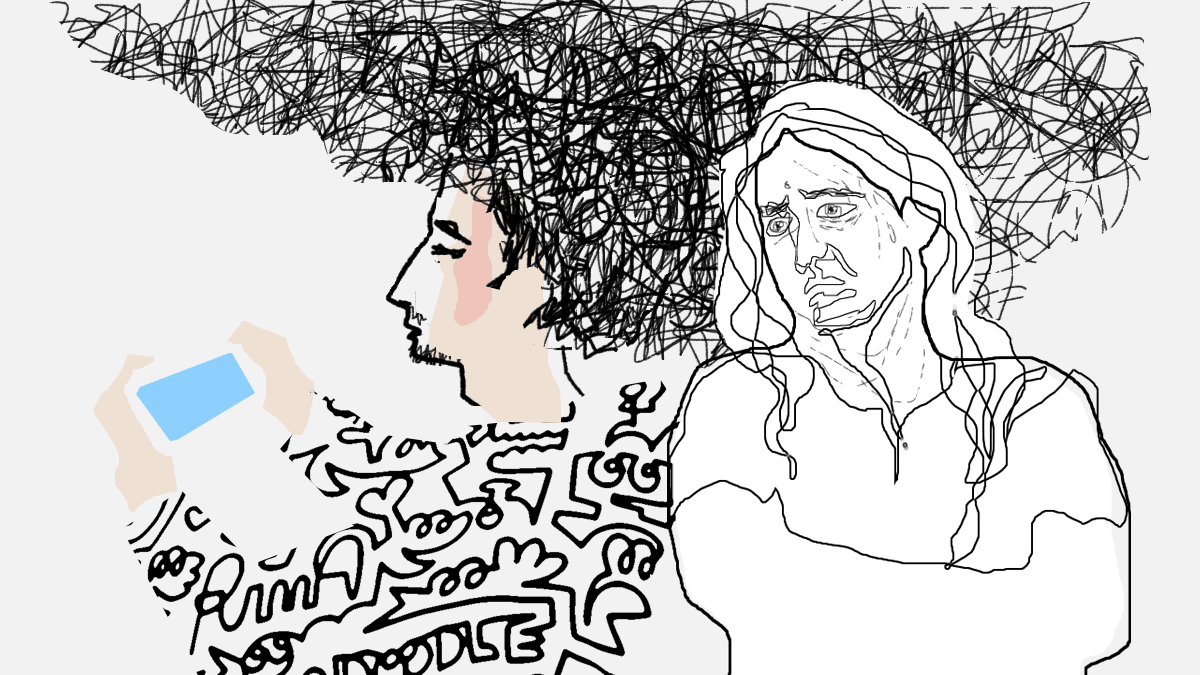Instead of trying to make him talk, which might feel like pressure to him, consider this: How can you create an environment where he wants to open up? suggests rediffGURU Dr Ashish Sehgal.
- You can post your questions to rediffGURU Dr Ashish Sehgal HERE.

Talking to a teenager is like trying to tune a radio. Sometimes, the frequency is bad. Sometimes, there is just too much static.
But when you are patient and keep trying -- Voila! you get a clear signal.
Communicating with teens is equally demanding and requires utmost patience.
There is a generation gap, resistance to authority, mood swings and so much more to deal with.
So how do you deal with a teenager who is shy, maybe stubborn, and not willing to talk to you?
rediffGURU Dr Ashish Sehgal has over 20 years of experience as a counsellor. He holds a doctorate in neuro linguistic programming, mental health and social welfare.
He is certified in neurolinguistics by both the Society of NLP and the American Board of NLP.
Dr Sehgal advises individuals to communicate effectively, share and resolve conflicts and prioritise their mental well-being.
- You can post your questions to rediffGURU Dr Ashish Sehgal HERE.
Anonymous: Dear Dr Ashish, How do I get my 14 year old teenage son to talk to me?
He talks less, is either angry or grumpy and rarely discusses anything at home with anyone.
Is this behaviour normal?
He used to be a talkative child when he was younger. How can I help?
Let me reassure you that you're not alone in facing this challenge and what you describe is quite common in teenagers.
The teenage years are a time of immense internal transformation. It's as if your son is building a new version of himself, one brick at a time, and sometimes, in that process, he may feel the need to pull away to figure things out.
You see, as children grow, their world expands. Their focus shifts from being family-centred to exploring who they are in the larger world.
This doesn't mean he cares any less about you; it simply means he’s working on something deep within himself -- maybe even trying to understand emotions and situations he doesn’t yet have the words for.
Now, instead of trying to make him talk, which might feel like pressure to him, consider this: How can you create an environment where he wants to open up?
Imagine if, instead of asking direct questions or expressing concern, you shared a small, non-threatening piece of your world. Maybe a funny story about your day or a memory of when you were his age. Sometimes, starting with something light gives him permission to engage without feeling interrogated.
Another way to open doors is through shared experiences.
Teenagers often speak more freely when they're not face-to-face. Maybe a walk or a ride, cooking a meal together, or even playing a video game could become moments where he feels comfortable talking.
And when he does speak, no matter how small the opening, meet him with curiosity, not judgment.
If he shares something, reflect it back to him in a way that says, 'I hear you and I value what you're saying.' For example, if he mentions feeling frustrated, you could say, 'It sounds like something's been tough for you lately,' rather than jumping to advise.
Finally, remind yourself -- and him -- this is a phase, not a permanent state. He is still that talkative child deep inside but, right now, he's learning to balance his need for independence with the safety of your love. Your steady presence, even when he seems distant, will be his anchor.
You're already asking the right question and that shows how much you care. Trust the process and trust your connection. It’s still there, even in the quiet moments.
- You can post your questions to rediffGURU Dr Ashish Sehgal HERE.
Disclaimer: All content and media herein is written and published online for informational purposes only. It is not a substitute for professional medical advice. It should not be relied on as your only source for advice.
Please always seek the guidance of your doctor or a qualified health professional with any questions you may have regarding your health or a medical condition. Do not ever disregard the advice of a medical professional, or delay in seeking it because of something you have read herein.
If you believe you may have a medical or mental health emergency, please call your doctor, go to the nearest hospital, or call emergency services or emergency helplines immediately. If you choose to rely on any information provided herein, you do so solely at your own risk.
Opinions expressed herein cannot necessarily provide advice to fit the exact specifics of the issues of the person requesting advice.











 © 2025
© 2025